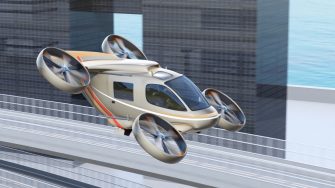
Developing a Virtual Reality simulator to gauge passenger comfort and behaviour in diverse traffic scenarios, aiding intelligent transportation systems. By engaging students in this research, we aim to equip the next generation with skills to innovate future mobility, ensuring safer, sustainable, user-centric travel experiences.
VIP ChallENG research goals
You will be actively engaged in groundbreaking research and will be equipped with skills and knowledge to become pioneers in the field of future mobility and virtual reality applications.
The main goal is to influence and shape industry standards for future mobility solutions and VR simulation technologies through:.
- Developing Advanced VR Simulator: Create a high-tech VR simulator with precise scenario replication and seamless hardware integration
- Enhancing User Comfort: Utilise VR simulator to optimize passenger comfort and transport experience within various transportation modes.
- Exploring User Behaviour: Analyse user behaviour in various mobility services through immersive simulations.
- Implementing Mechatronics and Motion Tech: Use motion technology for realistic experiences and human-machine interaction.
- Utilizing Data Analytics and ML: Extract insights from simulation data for decision-making and system enhancement.
- Optimizing Control Systems: Focus on vehicle safety, efficiency, and user satisfaction.
- Evaluating Societal Impact: Address sustainability and societal needs in future mobility solutions.
Research, design and technical areas
VR based Future Mobility project is divided into 3 sub projects while the immediate and primary focus will be Flying Cars:
- Flying Cars, UAVs and AVs
- Active mobility (pedestrians, cyclists, electric scooters)
- Vehicle Dynamics
Civil and Environmental Engineering
The civil and Environmental team will develop comprehensive traffic scenarios, specifically tailored for flying cars. This task involves creating detailed simulations that reflect realistic vehicle behaviour, accurately modelling road networks, and meticulously planning routes for both traditional vehicles and flying cars. Our aim is to construct a dynamic and intricate simulation environment that not only challenges drivers but also provides a realistic representation of potential future traffic conditions.
Psychology
The psychology team will design a series of psychological parameters and comprehensive questionnaires, aimed at evaluating the comfort level of participants engaged in our VR simulators. In addition to subjective measures gathered from questionnaires, we will integrate objective data collection using various sensors. Key among these will be biometric sensors to monitor physiological responses such as heart rate, which can offer insights into the participant's stress levels and overall comfort while engaging with the simulation.
Computer Science
The software team will develop a comprehensive software package for the Virtual Reality (VR) simulator. This task includes creating a customized 3D simulated environment tailored to our specific requirements. The work encompasses a range of technical aspects from designing immersive and interactive virtual landscapes to integrating user interface elements for enhanced user experience. Our team will employ various programming languages and tools, such as C++, Python, Java and Unity.
Mechanical and Mechatronics
The mechanical team will design and construct motion actuators capable of simulating physical movement with four degrees of freedom (DoF) – specifically, pitch, roll, yaw, and slide. This involves the precise engineering of mechanical systems that can accurately replicate these movements, providing a realistic and immersive experience. Additionally, our focus will be on integrating these actuators seamlessly with the control systems, ensuring that they work in harmony with the overall simulation setup.
- Join this team for
- Desired skills
- Industry partners
Professional Development
• Teamwork
• Leadership
• Design
• Communication
• Integrity
• Innovation and excellence
• Diversity
• Respect
• Resilience
Degrees:
- Civil and Environmental Engineering
- Mechanical Engineering
- Mechatronics Engineering
- Computer Science
- Psychology
- Aviation
Depending on the team and discipline:
- Knowledge and experience of one or more coding languages, including
- C#
- Java
- Python.
- Knowledge and experience of 3D visualisation engine, including:
- Unity
- Unreal Engine.
- Knowledge and experience of 3D modelling, including:
- 3Ds Max
- Blender
- Maya
- Knowledge and experience of hardware integration and development, including in the field of:
- Mechatronics
- Mechanical
- 3D Printers
- CNC’s
- Virtual Reality and Augmented Reality
- Knowledge and experience of optimization techniques and operations research
- Knowledge and experience of human factors analysis and psychology.
- Knowledge and experience of vehicle dynamics and control.
- Knowledge and experience of data analytics and statistics
Team Academic Lead
Prof Vinayak Dixit
Professor of Transport Systems
School of Civil and Environmental Engineering
Matt Cabanag
EF Associate Lecturer
School of Art & Design
matt.cabanag@unsw.edu.au
Prof Peter Poulet
Director of the Cities Institute
Dr Divya J Nair
Senior Lecturer
School of Civil and Environmental Engineering
